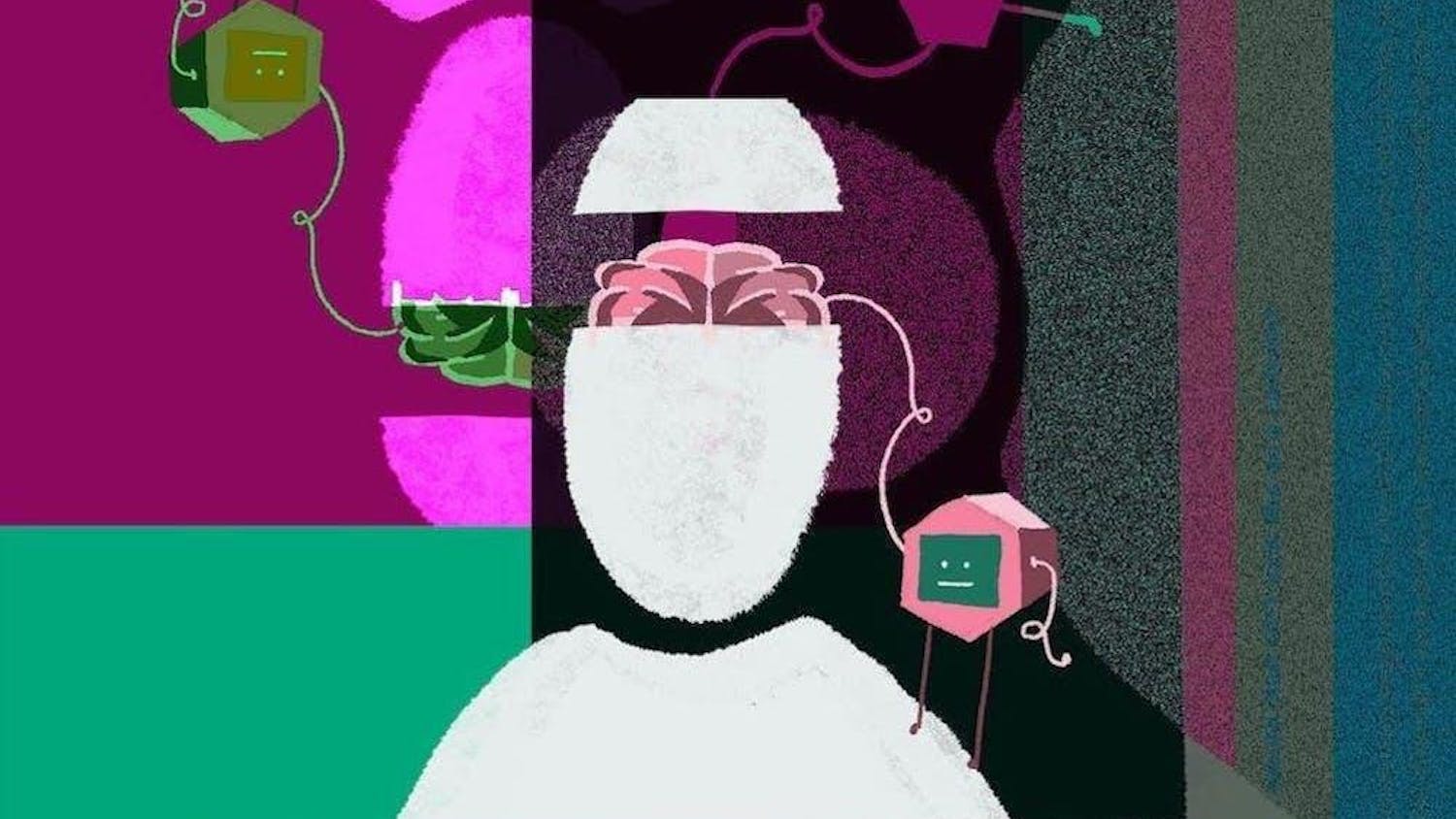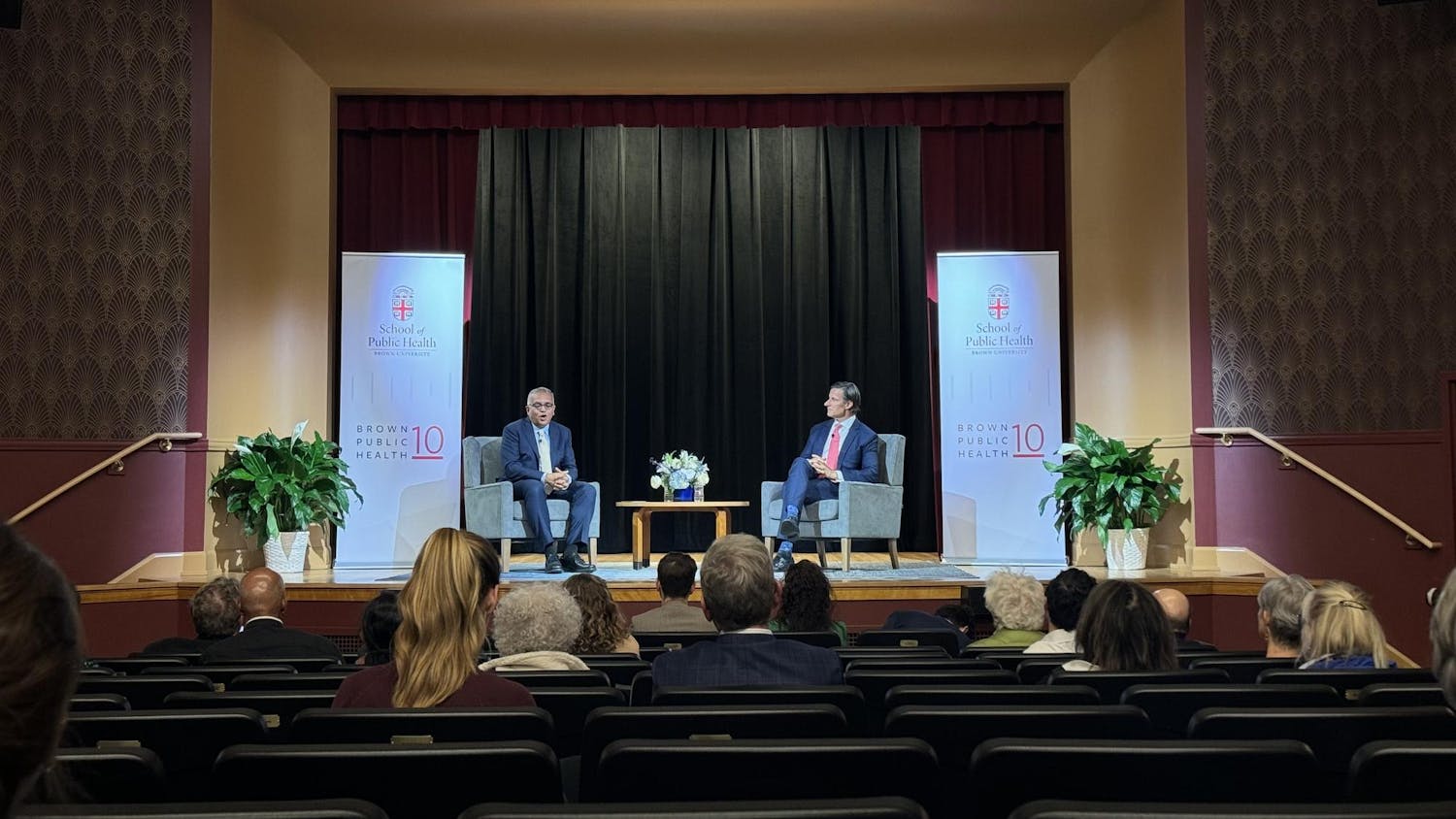“Science is driven by human beings and their strengths and weaknesses,” renowned scientist Erling Norrby told a nearly full Sidney Frank 220 Friday afternoon.
Norrby, a virologist who has served on the Nobel Committee for Physiology or Medicine, and is now Lord Chamberlain in Waiting at the Royal Swedish Court, covered topics ranging from the Nobel nomination and selection process to James Watson and Francis Crick’s discovery of the double helix in his talk entitled “Politics of the Nobel Prize.”
Student organizers Nico Enriquez ’16, a former Herald opinions columnist, and Madeleine Matsui ’17 originally contacted Norrby, who is a friend of Enriquez’s father, to come speak at Brown when they heard he was touring colleges, Enriquez said.
Matsui, a former Herald contributing writer, added that they thought his wide range of scientific knowledge would make him a perfect speaker. She said though the event was catered toward those interested in science, she hoped the event would draw “not just a science crowd,” but rather students and parents with a wide range interests, since the event coincided with Family Weekend.
Norrby began his lecture with a brief overview of his latest book, “Nobel Prizes and Nature’s Surprises.” He drew laughter from the audience as he described the cover art: stone busts of Watson and Crick facing forward on the front cover and backward on the back, “with their brains in the middle,” he said.
He then described the nomination process for Nobel Prizes, specifically in the subject he chaired — physiology or medicine. These days, between 3,000 and 4,000 invitations for Nobel Prize nominations are sent out worldwide, Norrby said. The nominations are sorted by a Nobel committee — five people for physiology or medicine — into categories of high priority, potential priority and least priority. Cases are then made for each candidate via written statements, which are compiled into a book that is hundreds of pages long.
In the physiology or medicine category, prizes must be given to scientists who have made a discovery. For other categories, the criteria are a little broader. For physics, a prize can be awarded for a discovery or an invention, and in chemistry it can be given out for a discovery or an improvement, Norrby said.
Norrby centered his talk on Watson and Crick’s discovery of the double helix. “DNA is the number one discovery of the previous century,” Norrby told The Herald. “It illustrates very well what we mean by ‘discovery.’”
After the talk, Norrby sat down with Distinguished Visiting Lecturer in Environmental Studies Cornelia Dean ’69 for a discussion.
Dean and Norrby branched beyond the physiology or medicine prize and discussed topics including the lack of incentive to develop an Ebola vaccination before the current outbreak and the choice of the Nobel Committee for Physics not to award the late Brown professor Gerald Guralnik a Nobel Prize for his theoretical work on the Higgs boson particle.
They also touched upon the timeline for awarding a Nobel Prize in science — in physiology or medicine, awards are usually given to scientists 10 to 15 years after their prizeworthy discoveries.
This delay is often due to the time it takes for the science to be validated in the scientific community, Norrby said.
Audience members then engaged in a question-and-answer session with Norrby, asking him about the rapidly expanding field of science, the possible inclusion of math and computation as a Nobel Prize division and the benefits of free higher education, like that available in Sweden, versus those of institutions that require tuition.
When asked about social or political pressures that may influence Nobel selection committees, Norrby said, “We talk science, and nothing but science.”
Audience members said they were impressed by the perspectives Norrby offerred on the Nobel Prize.
“I thought it was interesting that he said politics weren’t involved in Nobel committees. He provided a lot of insight about why there is a lag between getting the prizes and the reasons why certain people do and don’t get the prizes,” Claire Rhee ’16 said.
David Xing GS said the talk was “informative” but added that he wished Norrby had “talked more about general stuff than the specific situation with Watson and Crick.”
Norrby told The Herald he hoped people got a sense from the lecture of how the process of scientific discovery fosters awareness of one’s strengths and weaknesses. “I know of very few other professions that give you such a unique opportunity to learn to know yourself.”

ADVERTISEMENT




